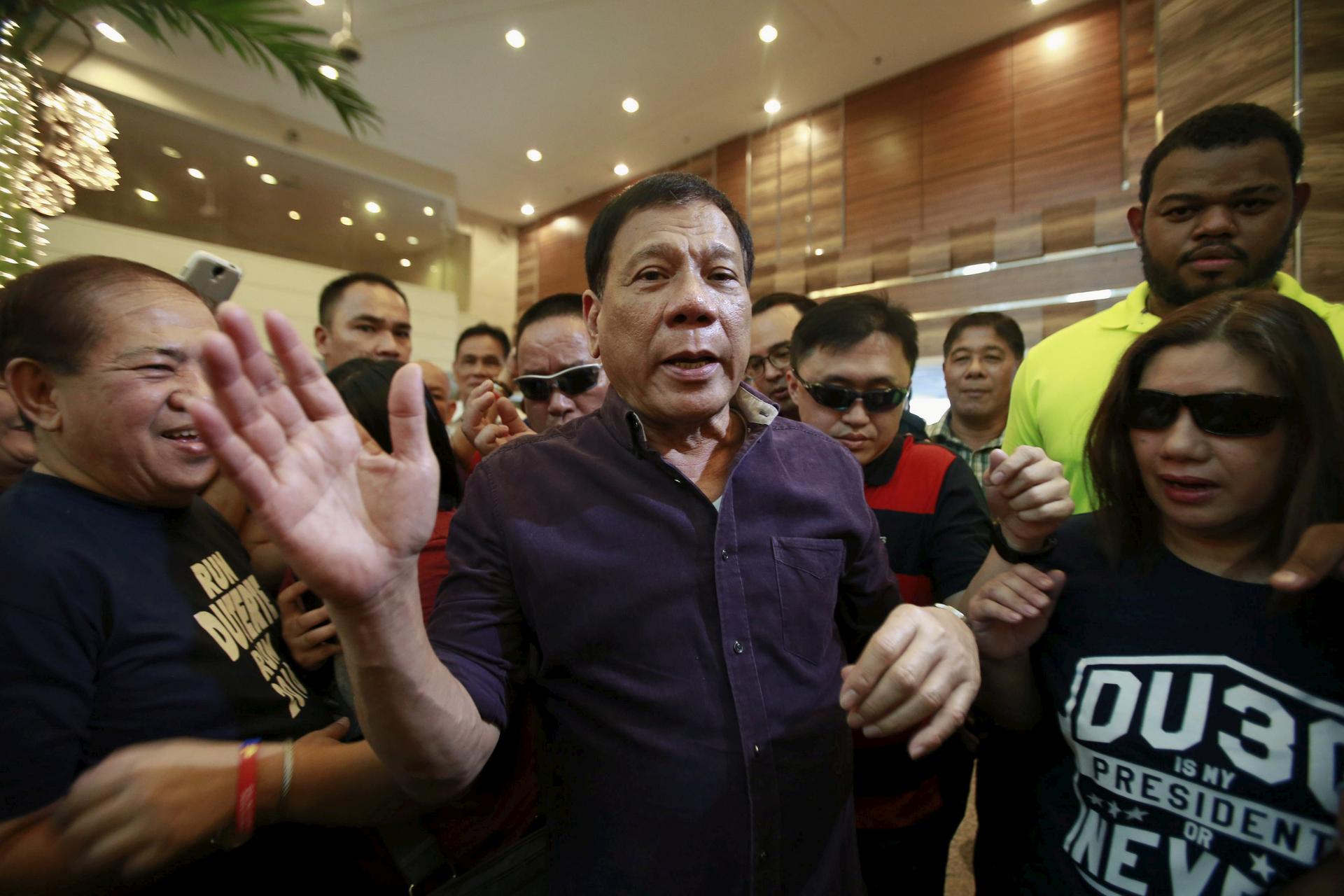Heard about ‘Donald Trump of the Philippines’? His record isn’t as extreme as his talk.
Rodrigo Duterte, center, a seven-term Philippine mayor, walks with his supporters during proclamation ceremony as a presidential candidate held at a hotel in Manila November 30, 2015.
Rodrigo Duterte, who has been mocked as the “Donald Trump of The East,” on Monday became the president-elect of the Philippines, a Southeast Asian nation plagued with chronic corruption and devastating levels of urban crime.
Steven Rood, the Asia Foundation's country representative for the Philippines, says Duterte is popular despite, or perhaps because of, outrageous comments he made on the campaign trail.
Duterte — who earned the nickname “The Punisher” as the law-and-order mayor of Davao for 23 years — infamously insinuated during a public speech that he would have liked to have been “first” to assault an Australian missionary who was raped and murdered in a Philippines prison in the 1980s. He also confessed to killing people, in interviews during his election run, and said disabled people should consider suicide.
Some of that is just the way Duterte has learned to speak to the public, Rood said, more than a reflection of his beliefs. “If you look at his actual policies in the city of Davao,” Rood said, “he has, in fact, been quite friendly towards persons with disabilities, and even gender friendly.” Abrasive as it seems, Rood added, “it’s the manner of talking and the manner of posing that makes people attracted to him.”
“One of the things that Filipinos look for in an elected official is that he’s approachable, that he doesn’t seem stand-offish, that he seems natural,” Rood said. “Partly because they want to be able to approach him in times of emergency, for the education of their child, or expenses, and so on.”
“He has long since adopted the stance of a street tough, and that often goes down well," Rood said.
Indeed, on Tuesday, a victorious Duterte said on Filipino television: “I will be a dictator, no doubt about it. But only against the forces of evil.”
Also: Two Trumps? Filipino Americans can vote in two (remarkably similar) elections this year
Rood said Duterte, 71, who was trained as a lawyer, has earned considerable legitimacy from Filipino voters because of the way he dealt with crime and criminals in Davao.
“When he became mayor in the late '80s,” Rood said, “it was the most dangerous place in the country. Murders and crime were rampant. Over the years he has cleaned it up and made it one of the safest cities. But in the process there have been many extra-judicial killings, typically unexplained but which are laid at his doorstep and which he condones.”
Human Rights Watch estimated that 1,400 people have been killed during Duterte’s time as mayor, Rood said. (Duterte has also said in interviews that he has personally killed “about three” people, though he later retracted those statements.)
“He’s said criminals have no human rights,” Rood said.
The message apparently resonates with voters, though.
“When we ask urbanites in particular, ‘What is the most important problem in your location?’ They say ‘crime,’” Rood said.
